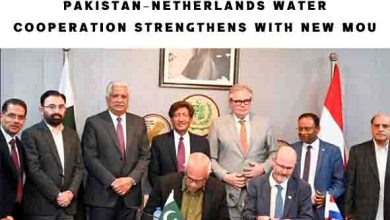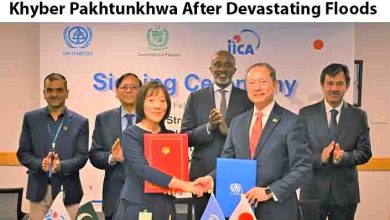Transformative Partnership: Punjab CM forges powerful alliance with GGGI for carbon finance and green growth
Punjab CM partnership with GGGI strengthens carbon finance, climate resilience, and green growth through international carbon markets and sustainable development initiatives.
Punjab CM partnership with GGGI marks a powerful step toward reshaping Pakistan’s environmental future. At COP30 in Belém, Brazil, Punjab Chief Minister Maryam Nawaz met Global Green Growth Institute (GGGI) Director General Kim Sang-hyup to finalize a strategic collaboration focused on climate change mitigation, carbon finance, and sustainable development.
The meeting signals Punjab’s resolve to shift from traditional development to modern, green, and climate-resilient planning. With GGGI’s global expertise, Punjab aims to unlock new financial streams, convert existing projects into international carbon credits, and lead Pakistan’s green transformation.
Punjab CM Partnership with GGGI at COP30: A Vision for Sustainability
During her high-level discussion at the COP30 climate conference, CM Maryam Nawaz emphasized that Punjab must accelerate green initiatives, develop carbon-friendly infrastructure, and benefit from global carbon markets.
Kim Sang-hyup appreciated Punjab’s large-scale flood relief operations, calling them “a model of committed environmental leadership.” He praised her COP30 address, noting the clarity of her climate vision.
CM Maryam highlighted that climate resilience has become a governance priority for Punjab, and GGGI’s support will help transform many initiatives into revenue-generating climate assets.
How the Punjab CM Partnership with GGGI Will Boost Carbon Finance
One of the major outcomes of this partnership is the conversion of provincial climate projects into marketable carbon credits.
GGGI specializes in:
- Designing carbon credit frameworks
- Helping countries access Article 6 mechanisms under the Paris Agreement
- Implementing the Carbon Transaction Facility (CTF)
- Building technical capacity for global carbon market participation
This gives Punjab unprecedented access to international climate finance.
The collaboration will help the province:
- Strengthen institutional readiness
- Attract green investment
- Monetize climate-friendly development
- Improve public infrastructure through climate financing
With carbon finance becoming a multibillion-dollar global market, Punjab’s entry—under expert guidance—significantly elevates Pakistan’s climate diplomacy and economic prospects.
Key Initiatives to Be Converted into Carbon Credits
GGGI will assist Punjab in transforming its environmental programs into certified, tradable carbon credits. Several climate-missions are under consideration, including:
Suthra Punjab (Clean Punjab Program)
Large-scale sanitation and solid waste management efforts can reduce methane emissions and qualify for carbon credits.
E-Mobility Transition
Punjab’s electric vehicle rollout, especially for public transportation and government fleets, can generate high-value credits.
Anti-Smog Measures
Crop residue management, industrial emissions control, and clean fuel adoption can be monetized internationally.
Water & Sanitation Projects
Climate-resilient water systems qualify under adaptation and mitigation financing models.
Plant for Pakistan / Afforestation Efforts
Reforestation and biodiversity programs provide long-term sequestration credits.
Collectively, these programs position Punjab to become Pakistan’s largest provincial contributor to carbon markets.
Punjab CM Partnership with GGGI: Green Growth Strategy for the Future
The partnership enables Punjab to strategically align its development agenda with global sustainability goals.
Key components include:
- Technical support from GGGI for green planning
- Adoption of climate-smart development frameworks
- Access to global green innovation networks
- Scaling renewable energy and low-carbon infrastructure
- Enhancing provincial readiness for carbon credit certification
CM Maryam Nawaz reiterated that Punjab’s green strategy aims to create climate-resilient cities, sustainable agriculture, clean transport, safe water systems, and environmentally sound industrial growth.
This mirrors global trends where provinces and states—not just countries—are leading climate transformation.
Why GGGI Matters for Pakistan’s Climate Future
The Global Green Growth Institute, formed at the Rio+20 United Nations Conference in 2012, has grown rapidly. With over 50 member states and 29 partner countries, it is one of the world’s leading climate finance and green growth institutions.
GGGI is known for:
- Supporting developing countries
- Designing carbon credit systems
- Building low-emission economies
- Supporting regional and national green growth frameworks
Its work under Article 6 of the Paris Agreement is particularly significant for Pakistan, which needs international support to combat climate vulnerability.
Kim Sang-hup—a veteran global climate expert and former Co-Chair of Korea’s Presidential Commission on Carbon Neutrality—highlighted Punjab’s potential to become a regional climate leader under this collaboration.
High-Level Delegation Strengthening Collaboration
Punjab’s delegation included:
- Senior Provincial Minister Marriyum Aurangzeb
- Provincial ministers Rana Iskander Hayat & Zeeshan Rafique
- Chief Secretary Zahid Akhtar Zaman
- Chairman P&D Board Naeem Rauf
- DG EPA Imran Hamid
Their presence reinforced Punjab’s unified commitment to a green, future-ready development model.
Conclusion: A New Climate Chapter for Punjab
The Punjab CM partnership with GGGI is more than a bilateral agreement—it is a shift toward a resilient, climate-smart future. With global support, Punjab aims to scale green solutions, monetize environmental progress, strengthen disaster resilience, and represent Pakistan more confidently on the international climate stage.
The partnership promises:
- Stronger green governance
- New financial opportunities
- A healthier environment
- Innovative climate interventions
- Provincial leadership in carbon markets
Punjab is entering a new era of sustainable transformation—one backed by international expertise and visionary leadership.
External Links (DoFollow)
- Global Green Growth Institute (GGGI): https://gggi.org
- UNFCCC Article 6 Overview: https://unfccc.int







